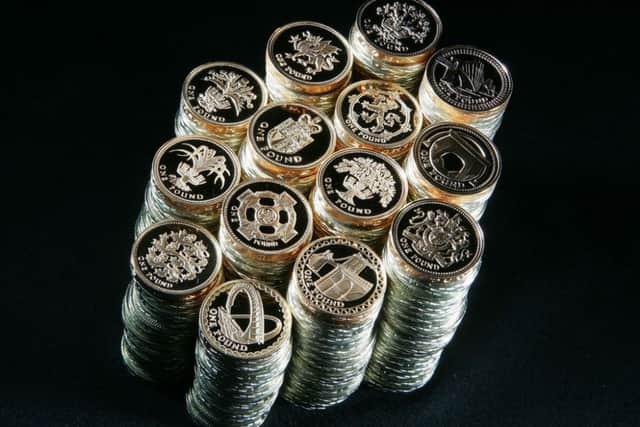Economist: SNP’s currency union plan will fail


Unemployment and a seven year slump would be the inevitable result of Mr Salmond’s plans for a formal currency union with the rest of the UK.
Professor Ronnie MacDonald, an adviser to central banks and the IMF, believes that a reliance on North Sea oil would unbalance Scotland’s economy making the non-oil sector uncompetitive.
Advertisement
Hide AdAdvertisement
Hide AdAt a Better Together event, Professor MacDonald, Adam Smith chair of political economy, said Plan A was “fundamentally flawed” for economic reasons.


He said Scotland was carrying a “very big deficit” of 11 per cent when its trade balance was considered without oil.
Prof MacDonald went on the explain that after independence Scotland would become an oil exporting economy. If oil exports were added to the trade deficit then Scotland would have an average overall surplus of 2.7 per cent, he said.
But oil prices would push up the prices of non-oil goods, making them uncompetitive in relation to the prices in Scotland’s biggest trading partner - the rest of the UK.
He added that if an independent Scotland’s exchange rate is fixed to Sterling, as the Scottish Government proposes, it would rule out altering it to address the non-oil deficit by making non-oil exports cheaper.
“You are going to make your non-oil sector very uncompetitive,” Prof MacDonald said.
“I calculated that is a massive difference that would imply a loss of competitiveness of seven per cent each year. Our manufacturing sector is going to become uncompetitive by about seven per cent relative to the rest of the UK. Clearly that is very, very bad news.”
Advertisement
Hide AdAdvertisement
Hide AdAn increase in the price of oil would push up prices in other sectors and create a demand for higher wages.
“That (the rising oil price) feeds into manufacturing sector and you become less competitive. You have got to match these wage, price increases by either increasing productivity or cutting wages - these are the only two routes.”
Professor MacDonald said a currency union would “bust up” with in a year - a scenario that would see Scottish GDP fall dramatically costing the country £100 billion.
He also said Plan B - informal use of the pound (sterlingisation) would result in years of austerity, because Scotland would not have enough foreign exchange reserves.
Professor MacDonald said the only credible option was a separate Scottish currency, a plan that would also require years of austerity to bring Scotland’s fiscal balance into surplus.
A Scottish Government spokesman said: “The opposition narrative seems to be that having oil is a dreadful curse for Scotland when it has been a benefit for every other country which has it.”